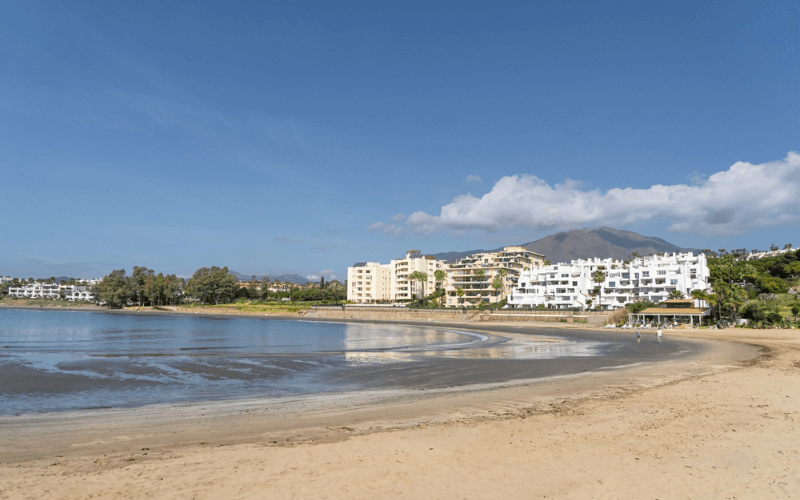Spain to end the golden visa: what options do I have now?
April 9th 2024 marked the end of a golden era in Spain.
The government officially announced its intention to end the golden visa.
First launched in 2013 – in the wake of the housing market crash – this particular visa program was introduced to attract much-needed foreign investment. Essentially, it allows non-EU citizens to obtain residency in Spain, by purchasing a property worth at least €500,000.
Many people have taken advantage of the scheme over the last 10 years, and it’s brought in billions of euros from real estate investors seeking residency status.
But fast forward to the present day and it’s started to lose its lustre.
If you’re interested in purchasing a property in the Costa del Sol – and were hoping to apply for a Spanish golden visa – here we take a closer look at why it’s being ditched and how you’ll be affected.
Golden visa programs – re-evaluated
At the height of the debt crisis in 2012, several eurozone countries – including Spain, Portugal, Greece, Ireland and more – introduced a golden visa scheme. All to attract investors, in the hope of plugging gaps in the economy and reviving their real estate markets. It’s fair to say that, to some extent, it worked.
Initially, investors from China, Russia and the Middle East flocked to buy property via the ‘residency by investment’ route. In recent years, British nationals have also followed in their footsteps – using it as a way to realise their dream of a home in the sun post-Brexit.
But across the board, all of these schemes are now being phased out or shut down.
Why? Because they’re believed to be contributing to the housing crisis in Spain.
Whilst the scheme has been a great boon for wealthy foreign investors, it’s thought to have made things a lot harder for local residents. Around 94% of the golden visas issued are linked to real estate in cities facing a highly stressed market – therefore making it ‘almost impossible to find decent housing for those who already live, work and pay taxes’ in Spain.
According to the prime minister, ending the scheme will hopefully undo some of the damage already caused, making access to affordable housing a ‘right instead of speculative business’.
Will ending the golden visa solve the problem?
The decision to scrap the Spanish golden visa has certainly been met with scepticism.
For a start, some real estate experts have pointed out that international investors only actually account for a very small part of Spain’s housing market – with less than 0.1% of the 4.5 million homes sold since 2013 being linked to a golden visa.
In reality, most international transactions are from within the EU – so they don’t involve the golden visa programme. Most foreign investors don’t even wish to obtain a residence permit. For those that do, there are plenty of other visa programs currently available – which don’t involve going down the ‘visa by investment’ route.
As a result, cancelling the scheme isn’t predicted to have much of an impact – on property prices, the housing market or the number of non-EU citizens investing in real estate.

What are your options as an investor?
At present, the information available is only based on media reports and we’re yet to receive official details of the change. But its impact is expected to be very limited.
After all, if you don’t wish to obtain a residence permit, you won’t be affected.
For recent buyers who have already applied, or were intending to apply for a golden visa, there may still be time. The government may have announced its plans, but they need to be approved and incorporated into law – and it seems only fair that a deadline will be set for applications. In the meantime, this means residency applications could potentially still be arranged.
If you’re just starting your property search and are hoping to immigrate, the good news is, the Spanish golden visa was by no means your only option. Several alternative visa programmes are available in Spain that may be suitable for your circumstances, allowing you to relocate permanently from outside the EU – without relying on your investment.
Alternatives to the Spanish golden visa
Detailed information on all of the following can be found at visaguide.world and schengenvisainfo.com. Here, however, we summarise some of the most popular visa options:
- Tourist visa
Perhaps you just want to escape to your new home for the winter months?
Or would like a holiday home you can visit a few times each year?
Non-EU nationals are entitled to stay in Spain for 90 days in any given 180-day period. Which means, you can enjoy multiple extended stays, without any need for an official visa or permit.
In recent months, there’s also been talk of the 90-day rule being scrapped for UK nationals, which could mark the start of more freedom and much longer visits. More information on this topic can be found in our previous blog ‘Spain’s 90-day rule – is it about to change?’.
- Non-lucrative visa
A great option for retirees.
A non-lucrative visa will allow you to live in Spain, without carrying out any work or professional activity – and it can be fairly easy to obtain. You just need to prove you have no criminal record, adequate health insurance, plus sufficient funds to support your day-to-day life in Spain.
We’ve covered this option in greater detail here, so be sure to take a look.
- Digital nomad visa
Following the pandemic, this is the latest visa to be offered.
Essentially, it allows people who work and reside in a non-EU country to work and reside in Spain for 6-12 months. Two further extensions, lasting one year each, are also permitted.
The key to getting a digital nomad visa is continuity. The work you do in Spain must exactly match what you were doing beforehand. For it to be granted, you must be able to prove you make at least 80% of your income from companies outside Spain, those companies are legitimate, and they permit remote working.
- Self-employment visa
Another fantastic alternative to Spanish citizenship by investment.
If you’re self-employed or plan to set up a business in Spain, you could be entitled to a self-employment work visa. To be considered, you’ll need to provide a detailed business plan, as well as evidence of sufficient funds to start up the business and make it a success.
You’ll also need a clean criminal record and a comprehensive health insurance policy.
- Work visa
This is suitable for anyone expatriated to Spain for work reasons. For example, if you have to relocate to your company’s sister office or have been offered a position of employment in Spain.
To be eligible, you must apply within one month of sending a ‘favourable answer’ to the offer of work. You’ll be asked to supply a copy of your employment contract. Then, once the visa has been obtained, you’ll need to enter the country within a month and apply for a residence permit.

Want to know more about Spanish visas?
Be sure to contact our property specialists.
This latest news regarding Spain’s golden visa may remove an appealing option for some foreign investors. But for most people looking to buy property and relocate, there’s no reason to be deterred. With or without this scheme, a new life in the sun is very much still a possibility.
Here at Bromley Estates Marbella, we’re here to support you every step of the way in your journey.
We have excellent knowledge of the property sector, including changes implemented by Brexit and the possible implications of this most recent announcement – and we’re always happy to help. Not only can we advise on the present rules and regulations, we can also provide additional guidance on the Spanish visas currently available, and which apply to you.
Plus, we have an extensive portfolio of properties for sale in the Costa del Sol – with something to suit all needs, wishes and budgets. So why not take a look at our listings and get in touch?
You can pick up the phone and give us a call at any time on +34 952 939 460 (+44 208 068 7606). Or simply send your enquiry to info@bromleyestatesmarbella.com and one of our experts will respond as soon as possible.


